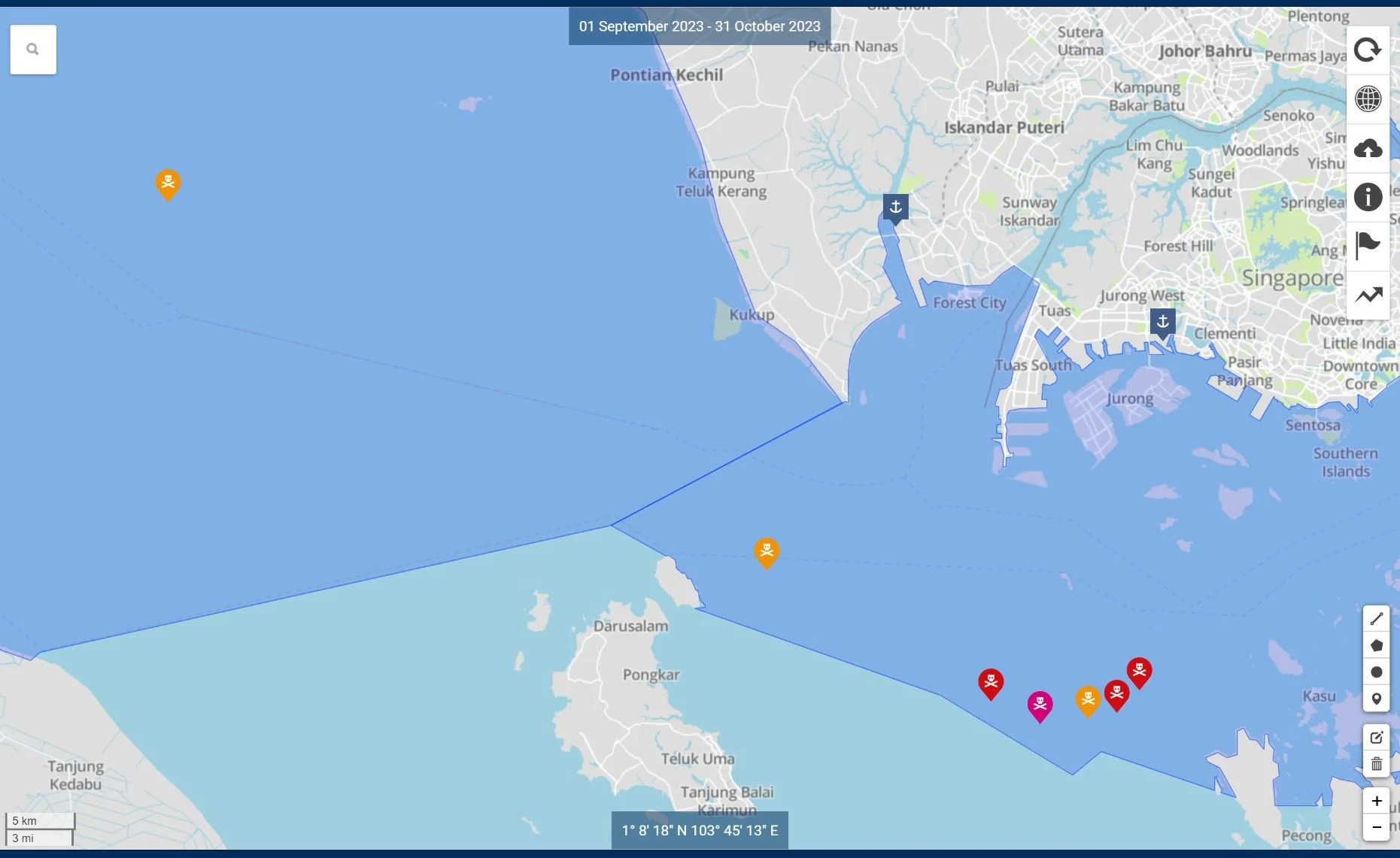Violence in the Straits of Malacca and Singapore
15 November 2023
Although injuries to crew as a result of vessel boardings in these straits are rare, there was a noticeable increase in the levels of violence perpetrated by armed robbers during September and October.
By Thomas Timlen, Analyst
The Straits of Malacca and Singapore experienced a significant decrease in the number of reported vessel boardings in September. But this decrease was both short-lived and coincided with a troubling increase in the level of armed boardings and violence faced by seafarers manning vessels in the area, ultimately leading to the stabbing of a ship master in late-October.
The first day of September brought with it a report of four perpetrators who boarded a bulk carrier navigating in the Phillip Channel area in the eastbound lane of the Singapore Strait Traffic Separation Scheme (TSS). One of the perpetrators was carrying a gun and used it to hold the duty engineer at gunpoint while the others gathered engine spares from the engine room store.
Thirty-seven days passed with no incidents reported in the area, when on 08 October two perpetrators armed with knives boarded a bulk carrier nearby the location of the September incident. In this case the perpetrators escaped empty-handed and no one was injured.
Eight days later six perpetrators armed with knives boarded a tanker and made their way to the engine room. Three crewmen in the engine room were tied up and their heads were covered. One managed to untie himself and the others and inform the bridge. Subsequent investigations revealed that some engine spares had been stolen. During the attack the chief engineer suffered a blow to the head.
Reported armed boardings of bulk carriers continued on 23 October, when about five perpetrators carrying knives and one gun tied up a seafarer in the engine room before escaping with equipment and spare parts.
The previous four incidents all took place in close proximity in the Phillip Channel. Subsequent vessel boardings were situated farther to the west. On 24 October another bulk carrier was boarded soon after passing Karimun Island by four perpetrators armed with knives who entered the engine room but failed to steal any items.
On 27 October, while heading east in the easternmost zone of the Malacca Strait, a bulk carrier was boarded by five perpetrators armed with knives. Before they escaped empty-handed, they stabbed the vessel’s master in the chest. The master was eventually taken to a hospital in Singapore for medical attention.
While these incidents involving weapons and violence in September and October raise concerns, they nonetheless remain anomalies. In the majority of cases perpetrators will tend to escape as soon as they realise that they have been detected on board. As recommended by IMO guidelines, crew should avoid confronting thieves and armed robbers, as doing so increases the potential for crew to be injured.
The recent violent acts do not necessarily portend a continued escalation during the upcoming months. It is believed that perpetrators operating in the area are aware that by minimising violence they will attract less attention from the regional law enforcement authorities. Should there be a continuation of seafarers suffering injuries at the hands of armed robbers while transiting the Straits of Malacca and Singapore, there will be increasing pressure on regional law enforcement agencies to take appropriate measures. This in turn could result with more robust interventions by the authorities including the arrests and prosecutions of the assailants. In the meantime, situational awareness and heightened vigilance are musts amongst all crew on vessels navigating these waters.
Risk Intelligence clients can obtain up to date assessments of the impact of maritime crimes in all parts of the world from the Risk Intelligence System.
LEARN MORE:
Want 24/7 access to unrivalled intelligence? Get a free trial of the Risk Intelligence System:
Sign up to get a two week unlimited free trial for up to five users, providing access to all incidents, assessment reports and features from vessel or desktop. Get in touch now.


